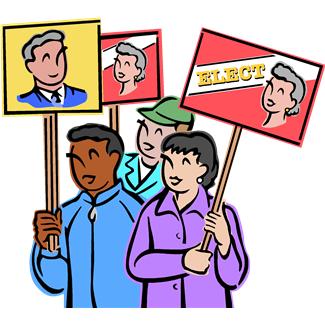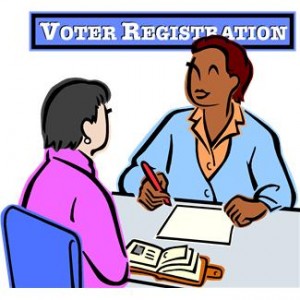 Many in the anti-war and peace movements struggle with how to relate to electoral politics and the Democrat Party, doubting the value of engaging or voting. I’ve heard all the arguments: “Voting is a waste because it does not lead to change. Voting legitimizes a corrupt system. A vote for Republicans or Democrats supports U.S. imperialism and corruption so vote for a third party. A vote for a third party is a wasted vote. Voting for the lesser of two evils is the only responsible thing to do,” and so on. While I sympathize with the frustration, the election cycle provides opportunities and realities that we cannot afford to ignore. In order to make the most of this time there are a number of things my partners in the peace movement should consider as a way to seize the moment.
Many in the anti-war and peace movements struggle with how to relate to electoral politics and the Democrat Party, doubting the value of engaging or voting. I’ve heard all the arguments: “Voting is a waste because it does not lead to change. Voting legitimizes a corrupt system. A vote for Republicans or Democrats supports U.S. imperialism and corruption so vote for a third party. A vote for a third party is a wasted vote. Voting for the lesser of two evils is the only responsible thing to do,” and so on. While I sympathize with the frustration, the election cycle provides opportunities and realities that we cannot afford to ignore. In order to make the most of this time there are a number of things my partners in the peace movement should consider as a way to seize the moment.
First we must understand that election cycles are like the tide. They come in, take over and recede. Like the tide, the election season comes no matter our feelings about it. Instead of futilely trying to fight the election tide we must capture some of its energy and utilize the snapshot as a one of our own gauges for progress. We also need to stop alienating people we need as allies to advance our cause. This does not mean withholding criticism of Democrats, their flaws and specific policies, but it does mean understanding why people make their choices and humbling ourselves by admitting our part in creating a climate where people feel they have no recourse than to vote for Democrats. We do hold some responsibility for failing to build something strong and deep enough or a vision sharp enough for people to take hope in. We should own up to some of that failure.
 To counter that problem, we must use elections as an opportunity to build coalitions and measure where we are on the road to the change we seek. Instead of internal fighting, unnecessary conflicts with allies or being ignored by them during the election cycle, the peace community should engage in voter registration and GOTV activities to build our networks and expand the participation and efficiency of the political process for when candidates with our values run. The point is not to work to elect Democrats or necessarily run our own candidates, but rather to engage people in the process via education and exposure to the values and aspirations of a peace movement. There are more people thinking about politics during this period, so let’s talk to them. We want all people engaged in the process to think about how their votes hinder or forward the goals of peace, but the people we engage will be more likely to do so.
To counter that problem, we must use elections as an opportunity to build coalitions and measure where we are on the road to the change we seek. Instead of internal fighting, unnecessary conflicts with allies or being ignored by them during the election cycle, the peace community should engage in voter registration and GOTV activities to build our networks and expand the participation and efficiency of the political process for when candidates with our values run. The point is not to work to elect Democrats or necessarily run our own candidates, but rather to engage people in the process via education and exposure to the values and aspirations of a peace movement. There are more people thinking about politics during this period, so let’s talk to them. We want all people engaged in the process to think about how their votes hinder or forward the goals of peace, but the people we engage will be more likely to do so.
Finally, we must strive to build a social movement across the full spectrum of issues that can transform political impact. We need a shift in values of the electorate: what people expect from themselves and what they expect and accept from government. If we build coalitions that begin to address local issues like violence and poverty with remedies which rely primarily on citizen organizing and action rather than demands to government and powerbrokers, people will begin to see that they do not need the “powerful” to change their communities. With concrete successes as examples of their own power and sharing the examples from across the country, a new way of seeing national politics can emerge. If people feel empowered then we will begin to have new expectations of responsibility from the 1% and government.
The election period is an opportunity to discuss, organize and educate, not a time for accusations and arguments. Let us stop wasting opportunities to engage and build relationships by helping to expand voter registration and work to ensure elections are transparent, free and fair. If we take this approach to our organizing during this period we will increase the number of new people we talk to about peace and their vote. We should not participate in the process to support a party. We should participate because we believe in democratic nonviolent change.








